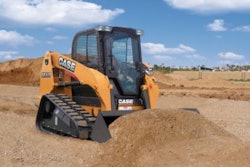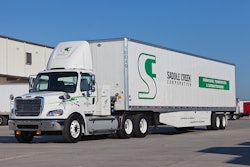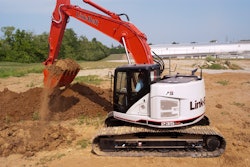Advanced and clean diesel technology is vital to the stability and growth of California’s economy, transportation and environment. To provide the most current and comprehensive information on diesel’s importance to California, the Diesel Technology Forum (DTF) has compiled a California state fact sheet that examines diesel technology’s role in the state’s transportation and economic systems – “Clean Diesel Technology Powers California”.
Clean Diesel is The “Backbone” of California’s Core Industries
As the state with the largest economy in the U.S., and the world's eighth largest, California relies on clean diesel as the backbone for many of the state's core industries. Clean diesel technology powers tractors and water pumps in the fields, construction equipment on roads and building sites, and even power generators on movie sets and at hospitals.
Thanks to California's leadership in promoting cleaner energy and environmental protection, clean diesel technology is helping the state achieve its emission-reduction goals.
In recent years, technological advances have brought environmental progress to the diesel industry through a new clean diesel system - combining cleaner diesel fuel, advanced engines and effective exhaust control technology. The progress and importance of clean diesel technology was recently recognized at a DTF/California Air Resources Board (ARB) press conference and ARB research seminar conducted on February 28, 2012 in Sacramento.
Important Transportation, Public Policy and Economic Information Highlighted In Fact Sheet
The DTF California fact sheet includes information regarding diesel technology in the following areas:
- Port and marine traffic
- Ground transportation
- Transit and school buses
- Construction, agriculture, power generation and mining
- Public health and safety
- Clean diesel passenger cars
- California public policy on air quality and technology.
California Public Transit, Agriculture and Emergency Services Rely Heavily on Diesel Technology
Other important California information included in the DTF state fact sheet includes:
- The annual sales value of California's agricultural products are roughly $35 billion, accounting for 12.3% of the country's total agricultural output and providing approximately 380,000 jobs;
- 132,000 diesel-powered construction vehicles are used in the state's construction industry, generating $65 billion annually and employing nearly 540,000 people;
- More than 7,900 public transit buses are used in California, and over half of these are powered by diesel or diesel hybrid engines;
- CAL FIRE, the state's Department of Forestry and Fire Protection, owns and operates more than 3,000 emergency vehicles, ranging from fire engines, bulldozers, trailers, construction equipment, and mobile kitchen units, all of which are powered by diesel technology.
Individual Fact Sheets Also Available For Other States
In addition, DTF has compiled additional state fact sheets about diesel technology’s importance in other states throughout the U.S.
The Entire U.S. Also Benefits From Clean Diesel Technology
Nationally, the diesel industry contributes more than $480 billion annually to the U.S economy, provides more than 1.25 million jobs and supplies a substantial export-to-value ratio five times higher than the national average, according to a recent economic report released by DTF.
The reports state: “As policymakers look to promote cleaner, more fuel efficient technologies, its use will grow along with other competitive alternatives. Diesel technology’s future value is further enhanced by its suitability for hybrid applications and its readiness to utilize a diverse range of first and second generation renewable and biodiesel fuels.
“National fuel economy standards for cars and light-duty trucks beginning in 2017 are expected to be met in part by an increasing number of clean diesel passenger vehicle choices. Similarly, first-ever fuel efficiency standards for medium- and heavy-duty commercial trucks and buses beginning in 2014 will drive further innovation and efficiency gains in diesel technology as a key compliance strategy.”
More Than 80% of All Freight in U.S. Is Transported By Diesel Power
Other facts outlined in the economic report include:
- Diesel Moves 80% Of All Freight: Diesel-powered trucks, trains, ships and intermodal systems moved 83% of freight by value ($11.7 trillion) and 85% by weight (12.5 billion tons) in 2007.
- Diesel Powers Over 70% Transit Buses: Approximately 71% of transit buses and 58% of commuter rail passenger-miles are provided by diesel-fueled trains.
- Clean Diesel Auto Sales Projected To Increase Significantly: Currently, only 3.4% of the cars in the U.S. are diesel-powered. Diesel accounts for a larger share of pickup trucks (13.6%). However, clean diesel sales are increasing and diesel auto sales increased 37% during the first eight months of 2011 compared to the same period in 2010 (the overall automobile market increased 10.4%). Some analysts predict that diesel passenger cars will account for 10% of the market by 2015.



















